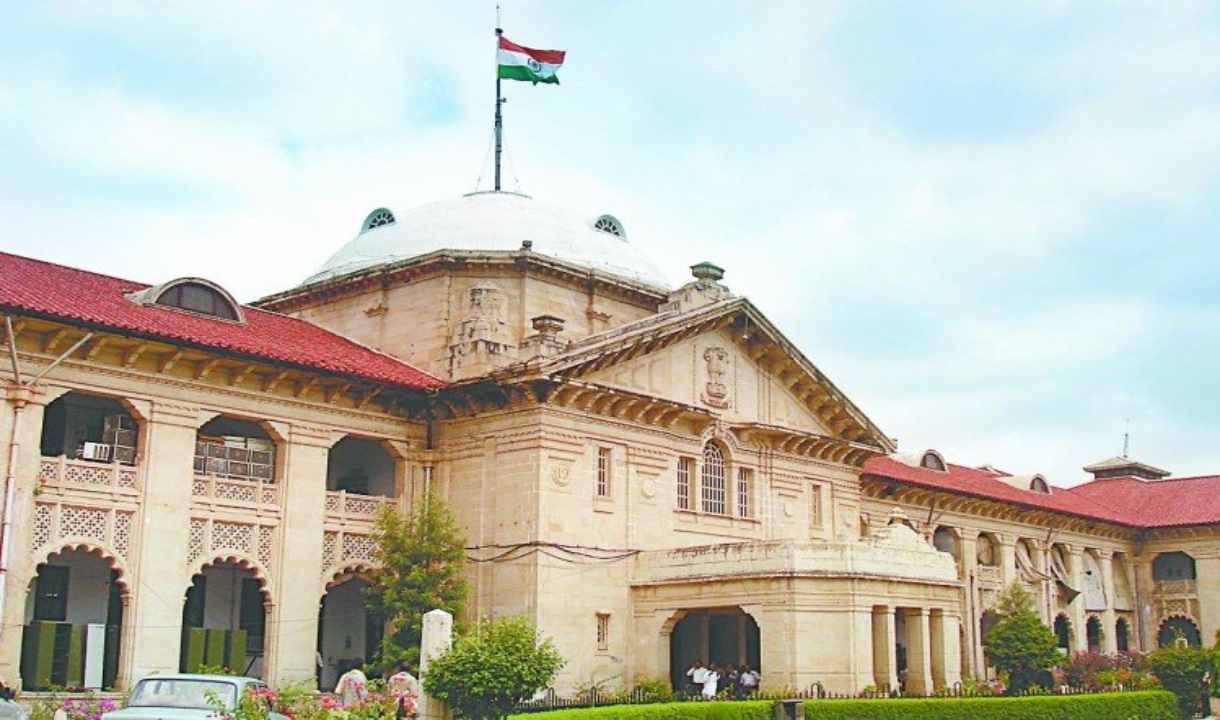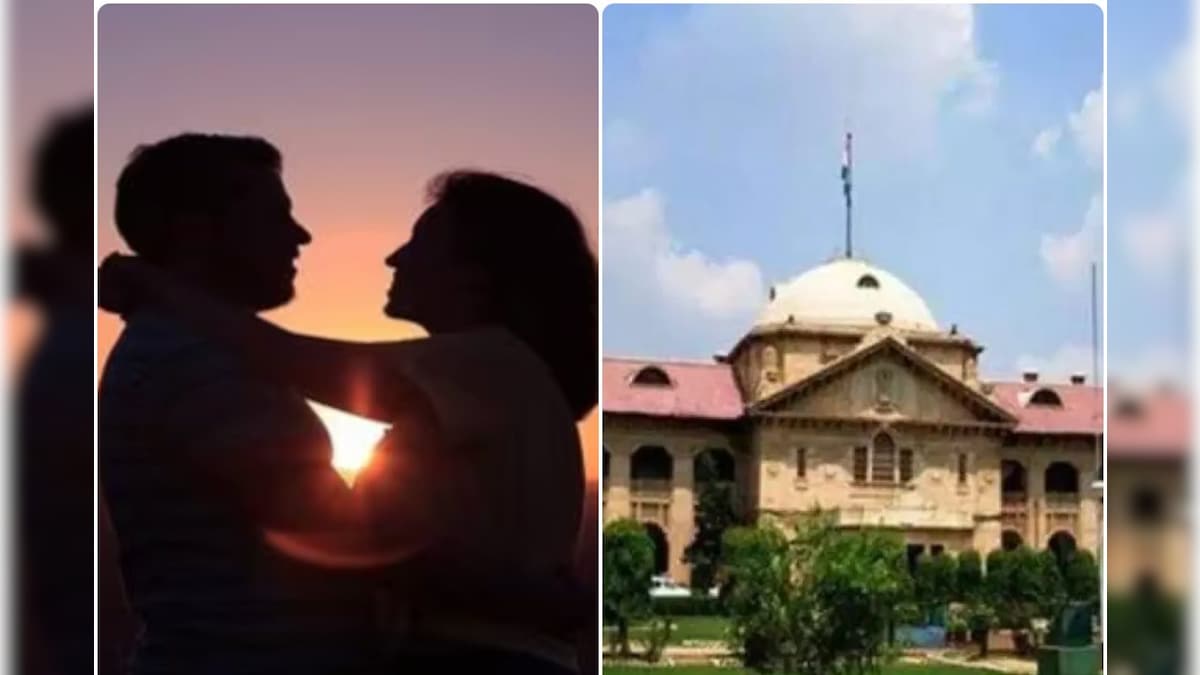Allahabad High Court Weighs In On Debate Surrounding Live-in Relationships vs. Traditional Marriage: Talks About Stability And Sincerity
Allahabad High Court recently in a case held that Live-in Relationships lack stability and sincerity, while upholding integrity of marriage.

Allahabad High Court Weighs In On Debate Surrounding Live-in Relationships vs. Traditional Marriage: Talks About Stability And Sincerity
An interfaith live-in couple was recently denied police protection by the Allahabad High Court, highlighting the fact that such partnerships are frequently transient as well as fragile. Live-in relationships are mostly motivated by infatuation, according to the bench, which was being presided over by Justices Rahul Chaturvedi and Mohd Azhar Husain Idrisi. Further mentioning that they lack the permanence, stability as well as sincerity found in marriage unions.
Court’s Concerns about Live-in Relationships
A Hindu woman and a Muslim man petitioned the court to strike down a FIR that had been filed against the man under Section 366 of the Indian Penal Code for alleged abduction of female.
Section 366, IPC states that “Whoever kidnaps or abducts any woman with intent that she may be compelled, or knowing it to be likely that she will be compelled, to marry any person against her will, or in order that she may be forced or seduced to illicit intercourse, or knowing it to be likely that she will be forced or seduced to illicit intercourse, shall be punished with imprisonment of either description for a term which may extend to ten years, and shall also be liable to fine.”
The court announced its ruling during the petition’s hearing regarding this petition. The FIR complaint had been lodged by the woman’s aunt. In order to defend their right to remain in a live-in relationship, the couple asked for the FIR to be dismissed as well as asked the court to grant police protection to them.

Arguments Presented Before the Court
During the proceedings, the woman’s lawyer contended that because she was over the age of 20, she had the right to make her own decisions about her future, which includes her decision to continue living in a live-in relationship with the accused. However, the opposing counsel said that the man was already facing legal troubles under the Uttar Pradesh Gangster Act and referred to him as a “Road-Romeo” as well as a vagabond who would wreck the life of the woman.
Court’s Observations on Live-in Relationships
The Court raised concerns about the couple’s relationship as a result of their young age as well as the unpredictable nature of these kinds of unions, even though it acknowledged that the Supreme Court had approved live-in relationships in a number of cases. The Bench observed that young partnerships frequently lack serious thought and may be the product of infatuation as opposed to a sincere commitment.
No doubt that Hon’ble the Apex Court in number of cases, have validated the live-in relationship but in the span of two months in a tender age of 20-22 years, we cannot expect that the couple would be able to give a serious though over their such type of temporary relationship.
As mentioned above, it is more of infatuation against opposite sex without any sincerity. The life is not a bed of roses. It examines every couple on the ground of hard and rough realities. Our experience shows, that such type of relationship often result into timepass, temporary and fragile and as such, we are avoiding to give any protection to the petitioner during the stage of investigation.
The Allahabad High Court clarified that it has its own reservation when it comes to such kind of relationship. It further contended that this should not be misconstrued that the Court is passing any type of remark or trying to talk about the validity of the relationship shared the petitioners. The bench further held that they cannot protect them from any legal proceeding which have been instituted in accordance with law.
The Court mentioned that in their opinion this type of relationship involves more of infatuation than to have the values of stability and sincerity. They further held that till the time being that the couple decides to engage in marriage and give a suitable name to their relationship or officially declare their sincerity towards each other, the Court refuses to comment on and avoids expressing any opinion in these types of unions.
Case being discussed above- Radhika And Another vs. State Of U.P. And 3 Others [CRIMINAL MISC. WRIT PETITION No. – 15096 of 2023]
Allahabad High Court Upholds Marriage’s Importance in Society Amidst Live-in Relationship Debates
In a different case a few months ago, the Allahabad High Court made a decision similar to this one on live-in relationships, and it remained unwavering in its commitment to giving marriage the respect it deserves. This claim is made in light of the court’s decision, which underlined the difficulties women suffer in live-in relationships, especially when dealing with a breakup and emphasized the value of the stability as well as social acceptance that come with marriage.

Women Face Social Ostracization Post Live-in Relationship Breakup
In a case involving a bail request a few months ago, Justice Siddharth of the Allahabad High Court recognized the challenges faced by female partners in live-in relationships following a separation. The defendant was accused of raping his live-in partner. The middle-class culture frequently stigmatizes separated women, subjecting them to social rejection as well as inappropriate public remarks, the court emphasized.
Due to these obstacles, women are compelled to marry in order to give their relationships social validity, reflecting the value placed on matrimonial ties in society. The Allahabad High Court firmly ruled that live-in relationships cannot be expected to provide the same security and stability as the institution of marriage. The court rejected the idea of often switching partners, stating that this behaviour does not support a stable and healthy society.
The importance of the security that marriage provides was emphasized by the court, who contrasted it with the transitory nature of live-in relationships.
The british concept of changing partners in every season cannot be considered to be the hallmark of a stable and healthy society. The security and stability which the institution of marriage provides to an individual’s life cannot be expected from a live-in relationship.
Live-in relationship shall only be considered as normal after the institution of marriage becomes obsolete in this country, like in many of the so-called developed countries where it has become a big problem for them to protect the institution of marriage.
Live-in Relationships in the Context of Changing Societal Norms
Concerned about shifting societal norms, the court argued that the institution of marriage is under threat as a result of the representation of infidelity and unrestrained live-in relationships in films and television series. The court lamented the deterioration of moral principles as well as the exaltation of non-committal partnerships, which it considers is harmful to societal stability.
The court also noted an alarming tendency of female partners from previous live-in relationships committing suicide as a result of social inappropriate conduct as well as the resulting mental anguish. This terrible outcome highlights the emotional toll that such relationships can have on individuals, highlighting the importance of societal as well as legal safeguards in partnerships outside the traditional confines of marriage.
Upholding the Significance of Marriage in Modern Society
The Allahabad High Court’s consistent stance highlights the lasting significance of marriage as it offers security, societal recognition, as well as stability in the face of changing social circumstances. Although live-in relationships are becoming more accepted legally, the court’s findings underline the difficulties and vulnerabilities that those who are part of such arrangements, particularly women, experience.
The court’s viewpoint emphasizes the need for societal reflection on the values that unite community members and individuals, calling for a careful balance between individual freedom as well as the sense of security provided by the institution of marriage as discussions about the legitimacy of various relationships continue.

The Sanctity of Marriage in Modern India: Lessons from the Allahabad High Court
The revered institution of marriage has recently come under fire because of changing societal norms as well as the impact of other cultures. The various difficulties and problems connected with this contemporary idea have been clarified by the observations made by the Allahabad High Court in cases involving live-in relationships. We are being forced to reflect on the values that support our social fabric as a result of these verdicts, which have ignited a significant debate.
The recent rulings of the Allahabad High Court have brought attention to the inherent difficulties that people in live-in relationships experience. While these agreements are becoming more common in Western nations, they have not yet been fully incorporated into Indian society. The court’s worries regarding live-in couples’ lack of security, stability, as well as social acceptance are shared by many people who are concerned about the decline of conventional values.
One of the fundamental problems appears to be the inadequate translation of Indian culture into Western ideas like live-in partnerships. These concepts are frequently misinterpreted, misapplied, or even exploited, leading to justifications for avoiding the obligations as well as sanctity that marriage entails. We ought to avoid letting the haste of modernization overshadow the wisdom embedded in the fabric of our culture.
The Sacredness of Marriage in Indian Society
According to Indian culture, marriage is a sacred bond that unites communities as well as families, not just a legally binding agreement. It stands for dedication, dependability, and legitimacy in society. Marriage upholds traditional values that place a strong emphasis on enduring companionship, shared obligations, as well as respect for one another. It creates a stable atmosphere for people to grow and prosper by giving them a sense of emotional support, safety, and belonging.
While modernity encourages us to seek out new opportunities, it is essential to remain mindful of our humble beginnings. We can accept change without doing away with the treasured traditions and practices that have withstood the test of time. It is important to find a balance between progress and customs, valuing cultural understanding while seizing contemporary opportunities that arise.
Maintaining the heritage of our culture does not imply staying stagnant; rather, it implies changing within the framework of our values. It entails drawing lessons from times gone by, comprehending the fundamental principles of our customs and history, as well as adapting them to fit into our contemporary life. A community that is deeply rooted in its cultural history can embrace progress while maintaining its identity and stability, much as a tree with deep roots is capable of growing to great heights.
Embracing Modernity while Preserving Tradition
The observations made by Allahabad High Court in both these cases serve as a reminder that even as we soar towards the future, we must not sever our ties with our roots. The challenges which posed by modern concepts like live-in relationships ask for a nuanced approach, one which embraces change while upholding the sanctity of marriage.
By acknowledging as well as appreciating the time-honoured institution of marriage, and including it according to our contemporary needs, we can create a society which is both progressive as well as deeply connected to its cultural heritage. Flying high is no doubt essential, but in the journey of modernization and westernisation, let us not lose sight of the solid ground which lies beneath our feet, the ground which nurtures our values as well as traditions, giving us the strength to face the challenges that the future holds with utmost wisdom and grace.





